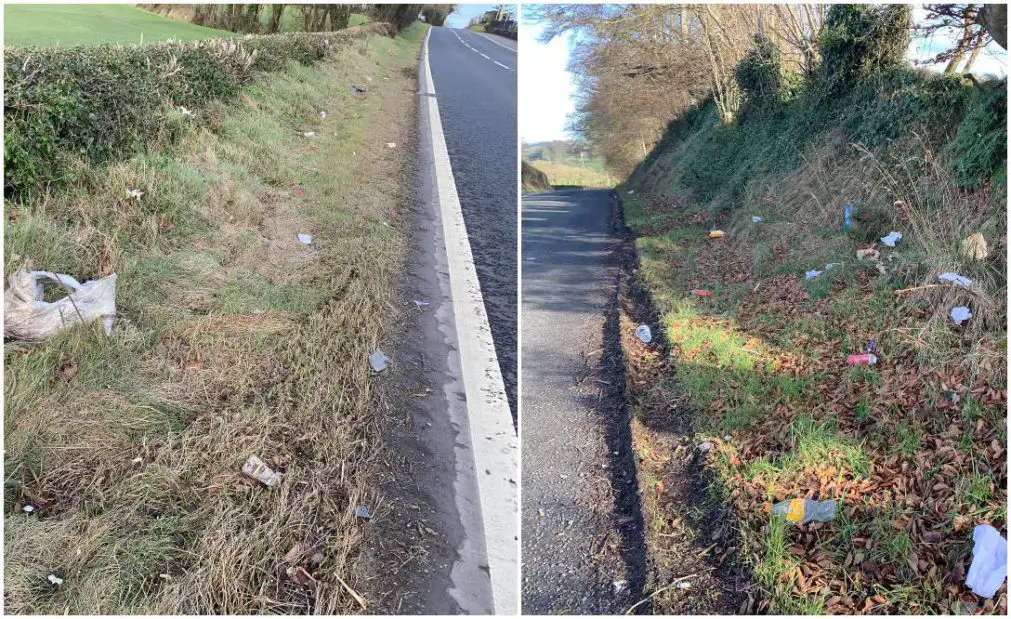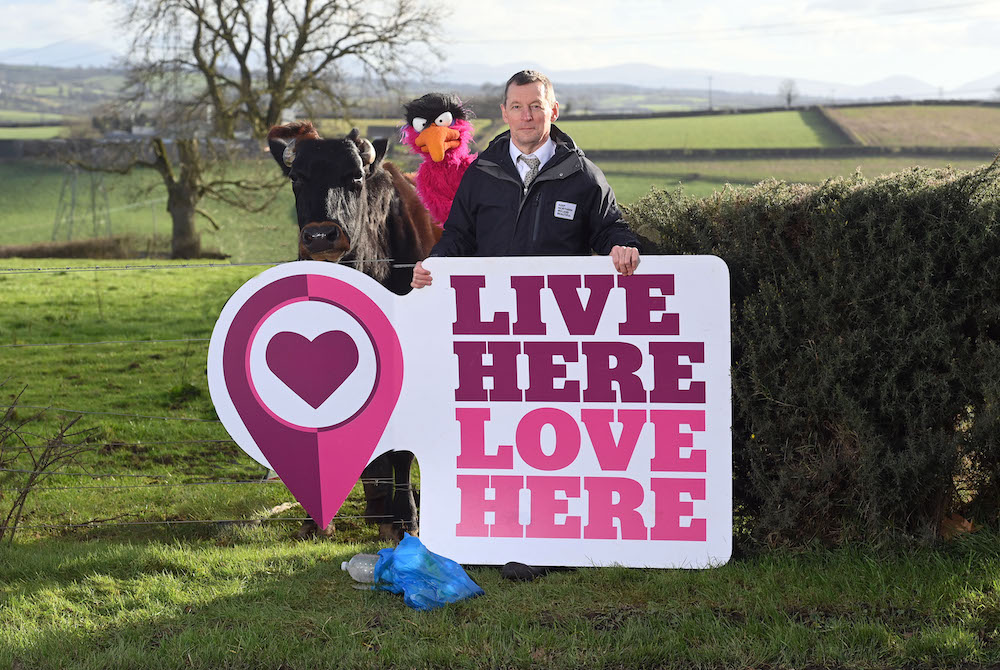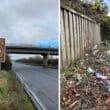
Keep Northern Ireland Beautiful’s community-based campaign, Live Here Love Here, and the Department of Agriculture, Environment and Rural Affairs (DAERA) are calling on people across County Armagh to consider the impact of, and refrain from littering in rural areas.
Results from Keep Northern Ireland Beautiful’s Cleaner Neighbourhoods Report 2020/21 have shown that 48 per cent of rural roads surveyed across the country carry more litter than what is considered the accepted standard.
The report also noted that the highest occurrence of littered takeaway packaging was noted in rural areas, with 41 per cent of the transects studied having some form of takeaway litter present. The results of the charity’s Local Environment Quality team’s 2021 summer survey showed that of 100 rural roads surveyed across Northern Ireland, 36 per cent of litter found was takeaway packaging.
Live Here Love Here has been engaging with policymakers in the Department of Agriculture, Environment and Rural Affairs, local councils and other civic groups over the issue of rural litter and its impact across Northern Ireland.
Environment Minister, Edwin Poots, commented: ”Rural littering is a burgeoning problem in Northern Ireland, and one that must be taken seriously. With almost half of our rural roads failing to meet acceptable standards of cleanliness, we all need to take responsibility by taking our own rubbish home and even reducing our use of packaging, particularly single use plastics.
“People across County Armagh can make a positive impact by getting involved in some of Keep Northern Ireland Beautiful’s litter picking initiatives.”

Pictured l-r Live Here Love Here’s litter-loathing puppet Al with Keep Northern Ireland Beautiful Chief Executive Officer Dr Ian Humphreys
Along with being unsightly and inconvenient, litter can have a potentially deadly impact on domestic animals, farm animals and wildlife. Discarded single use plastics can take up to 1,000 years to degrade, slowly releasing microplastics which can travel through to and damage ecosystems which serve as homes to marine and wildlife.
Along with littering from cars, David Brown, Deputy President of Ulster Farmers’ Union explains that illegal dumping is an increasing issue in rural areas. He said: “Fly-tipping is a scourge on the countryside and one that too many of our farmers have experienced first-hand. Dumping unwanted waste in rural areas is dangerous to human health and harmful to livestock and wildlife. In the past, there have been issues where fly-tipping waste polluted watercourses and contaminated land.
“It is inconsiderate and unacceptable. When unwanted content is dumped on a farmer’s land, it becomes the responsibility of the landowner to dispose of, while local councils are left to take ownership of waste on public land and highways. This is both costly and time consuming for farmers and ratepayers.
“Since the pandemic began, the amount of litter being dumped on farmers’ land has increased, with many rediscovering the outdoors for recreation. I urge all countryside visitors to be more considerate of those living locally, and of animals and to commit to taking their waste home with them.”
Live Here Love Here inspires and supports people across Northern Ireland to create cleaner, greener and more sustainable communities. It observes that rural littering typically occurs when thrown from a car window or left behind after a picnic and can be even more frequent and hazardous than urban litter.
Dr Ian Humphreys, Chief Executive of Keep Northern Ireland Beautiful added: “Our most recent Cleaner Neighbourhoods Report has shown that rural areas are disproportionately affected by litter when compared to residential, recreational and primary retail areas.
“Rural litter is particularly hazardous, seriously impacting upon our environment and economy. Tourism currently represents a considerable percentage of Northern Ireland’s GDP, but unsightly rural roads and hedgerows are unlikely to inspire a return trip and can damage the perception of our region.
“We’re calling on people across County Armagh to protect rural areas and commit to not littering themselves. In addition, people can take a proactive approach to alleviating the problem by getting involved with some of our litter picking initiatives through Live Here Love Here. Our Adopt a Spot scheme allows groups of volunteers to formally adopt a spot in their community and look after it with regular clean ups.”
To find out more about the Adopt a Spot scheme, visit: http://www.liveherelovehere.org.



